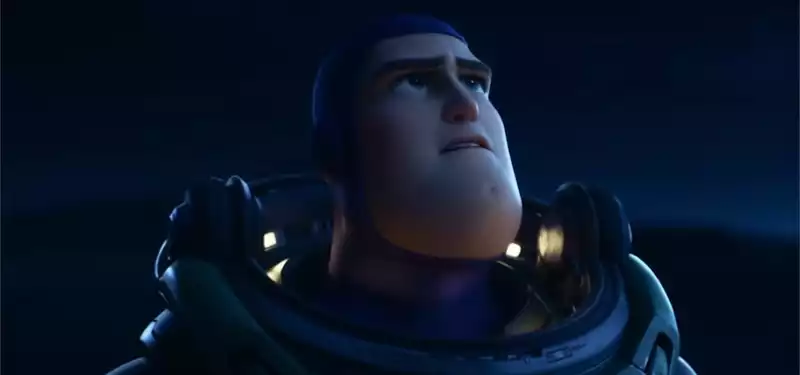Jun 17, 2022
-Lightyear" Review Roundup: stand-alone fun, but doesn't reach the franchise's heights
It has always been difficult for Pixar's "Lightyear" to impress the way the "Toy Story" series has.
This is not to say that critics have been scathing of the film. In fact, Rotten Tomatoes currently has a 79% critical rating. However, this number is the lowest for a new franchise feature film and one of the lowest for a Pixar feature film. In fact, according to the critics group website, the first four "Toy Story" films are the highest-rated animated feature films of all time, boasting 100%, 100%, 98%, and 97% ratings, respectively.
The review roundup focused on how critics have positioned "Lightyear" within the "Toy Story" series; Lightyear is set as a prequel to the original "Toy Story" released in 1995, with Andy depicted as the film that led to his acquisition of the Buzz Lightyear toys. By placing the film in the "Toy Story" canon, comparisons were always inevitable.
Critics commented as follows.
Owen Gleiberman of Variety seems to rate "Lightyear" as a good stand-alone film, if not an excellent "Toy Story" film.
The film is a delight in its own right and is a good diversionary tactic. However, it should be noted that this is one of those Pixar films that feels like it has 50% of Disney's DNA, given that it is a spin-off of the "Toy Story" series, one of the greatest and most lasting achievements in modern animation.
Justin Chang of the L.A. Times had this to say about the legacy of the latest installment of the franchise:
It will be interesting to see what the Light Years themselves look like a quarter century later. Compared to the "Toy Story" quadrilogy, it feels visually grandiose and cosmic in scale, but the story feels thin and generic. The screenplay by Angus MacLean (in his feature directorial debut) and Jason Headley adds a few mind-bending twists, but otherwise rests comfortably in the familiar and very elusive realm of family-oriented science fiction.
Tomlis Loughry of the AV Club takes a more cynical view of the film's lineage:
One might rightly ask Pixar why they didn't make a unique space movie without the "Toy Story" connection. The miserable marketing phrase "existing IP" is the answer you're looking for there, and it seems to be an essential concept for insular studios in a theatrical release climate that is unfavorable to original stories that are not based on proven moneymakers. After all, "Soul," "Luka," and "Turning Red," three of Pixar's recent original and far superior films, were sent straight to Disney+ without a theatrical release (admittedly, initially for pandemic-related reasons). In that regard, "Lightyear" may have the laser-lighted pulling power that will bring "Toy Story" fans into theaters, despite the lack of the lean and thoroughly accessible creative essence of the "Toy Story" series at its core.
Hannah Strong of "Little White Lies" was also unhappy with Pixar's latest "Toy Story" film.
Unfortunately, "Lightyear" focuses on action scenes and inexplicable villain twists that ruin the entire plot of "Toy Story 2." The characters are all flimsy sketches and archetypes (a prisoner seeking redemption, a bumbling fool trying to get things right for once, an irritatingly cheerful robot assistant), and even Lightyear has less personality than the action figures in the original "Toy Story". Perhaps younger audiences will revel in the cute robocats and the silliness of the battle scenes, but Lightyear lacks the heart and soul that is the hallmark of Pixar films.
Carlos Aguilar, a contributor to The Playlist, was expecting something more original:
Following two of Pixar's freshest films in years, "Luca" and "Turning Red," neither was deemed worthy of a full theatrical release. How tiresome it is that most studio-produced films must exist as part of a larger multiverse to be worthy of release. After all, from the perspective of Disney's business model, "To Infinity and Beyond" only means that a sequel will inevitably be made.
"Lightyear" is a co-production between Pixar Animation Studios and Walt Disney Pictures, distributed by Walt Disney Studios Motion Pictures. It is produced by Garin Sussman and executive produced by Pete Docter and Andrew Stanton. Angus MacLean directed the film from a screenplay he co-wrote with Jason Headley.
.



Post your comment